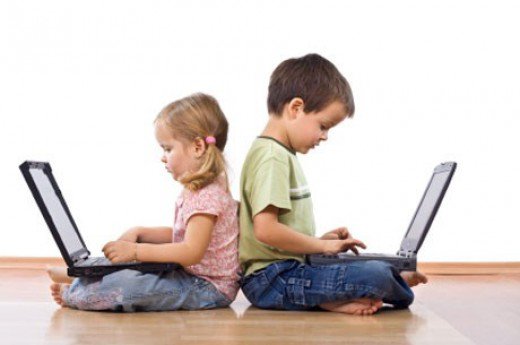Social technology is any kind of technology that facilitates social interactions and is a means of communication. This can include email, text messaging and social media. With the evolution and advancement of technology also comes the rise in popularity of this kind of communication technology. Particularly as technology becomes more popular, there is controversy as to what kind of effect it has on kids and whether or not it’s making young people crazy. The young people that we are referring to includes ages two to college students which puts us in this group. Ellen Wartella and Nancy Jennings reflect on this controversy by claiming there are people who say that technology has the ability to “open new worlds” for children and put them in a developmental position that exceeds those of previous generations, but are also people who are not convinced. Some believe that the best way for children to develop effectively is to use traditional methods. Whether or not it’s making us crazy, there are studies and research that show the impacts of technology on the psychological well-beings of kids and adolescents.
There have been many recent studies on social media and its impact on the mental well-being and stability of teenagers. With this large effect, the use of social technology in teenagers’ lives has a specifically heavy impact on their mental and social state including the development of antisocial traits, self-esteem issues, and other mental issues. Through research done by Larry Rosen, many kids are seeking empathy through their online relationships, as well as relying on the feedback they receive for their happiness. This impact on the minds of young people can have long-term effects such as depression, anxiety, eating disorders, etc. In a recent article, Kelly Wallace, digital correspondent and editor-at-large for CNN, conducted research on social anxiety in social media. She specifically touched on FOMO, or fear of missing out, and how the increase in technology has drastically increased this FOMO in the lives of many teenagers. She also did extensive research on the “likes” system and how it plays a role in the lives of many teenagers. If you have the most likes, you are considered popular, however, if you don’t get a lot of likes, you may be bullied or picked on for being weird or not normal. This can lead to a type of bullying called cyberbullying.
Cyberbullying, as defined by University of Texas professor E. Bun Lee, is the “aggression that is intentionally and repeatedly carried out in an electronic context.” Though similar to traditional bullying, research has shown that cyberbullying can be even more harmful than traditional bullying. Robert Thornberg, an associate professor of Education at the Department of Behavioural Sciences and Learning at Linköping University, studied traditional bullying and its impact on identity and self-esteem. In his article, “School Bullying as a Collective Action: Stigma Processes and Identity Struggling,” Thornberg defines bullying as “a social process in which a child in a less powerful position is repeatedly harassed or excluded by others.” The same kind of harassing and excluding behavior that occurs through the traditional bullying that Thornberg studied happens online, but in a much more anonymous and harmful context. The rise in social technology has made bullying more accessible and easier to get away with than ever before.
Regardless of whether or not we know it, technology is affecting us both in negative and positive ways. Technology is such a big part of our lives and it’s important to explore how it is affecting our physiological well-beings and our mental states.
